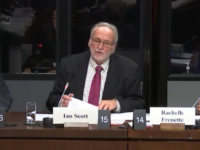The Senate committee studying Bill C-11 has ramped up the hours devoted to clause-by-clause review with amendments related to user generated content currently up for debate. However, earlier today, just prior to addressing the user content issue, the committee shockingly adopted an amendment that adds age verification for online undertakings to the Broadcasting Act. The amendment comes as a policy objective, meaning that it will fall to the CRTC to determine how to implement it. The implications are enormous since broadly defined the policy would require every online service that transmits or retransmits programs over the Internet (broadly defined to include all audio and audiovisual content) to establish age verification requirements to prevent child access to programs with explicit sexual activity. If the CRTC implements, the policy will surely be challenged as unconstitutional.
Post Tagged with: "c-11"
A Tale of Two Readouts: U.S. Escalates Trade Concerns With Canadian Digital Policy as Canada Seeks To Downplay the Issue
Canadian International Trade Minister Mary Ng and U.S. Trade Representative Katherine Tai met yesterday to discuss Canada-U.S. Trade issues and concerns regarding Canada’s digital policy – most notably a proposed digital sales tax and Bills C-11 and C-18 – continue to mount. The U.S. raised digital policy concern over the summer, specifically citing Bill C-11 with a reference to “pending legislation in the Canadian Parliament that could impact digital streaming services.” The latest readout suggests that the concerns are growing, as the U.S. now cites both Bills C-11 and C-18 by raising “pending legislation in the Canadian Parliament that could impact digital streaming services and online news sharing and discriminate against U.S. businesses.”
No Billion Dollar Bonus: Officials Admit Most Bill C-11 Funding Isn’t New and Will Still Be Controlled by Foreign Streamers
Canadian Heritage Minister Pablo Rodriguez and department officials appeared before the Senate Committee on Transport and Communications yesterday on Bill C-11. I posted a Substack of my live tweeting of the Minister’s appearance, which included continued gaslighting on the applicability of the bill to user content and an acknowledgement that it could lead to algorithmic manipulation. After Rodriguez departed, officials took questions for another hour. One of the most notable exchanges involved the express admission that the much-touted estimate that the bill would generate a billion dollars is massively overstated. In fact, department officials now admit that most of that money isn’t new at all. Rather (much as I’ve argued), it is simply a re-allocation of existing expenditures in Canada that is unlikely to result in significant increased economic activity or new jobs.
The Law Bytes Podcast, Episode 147: Canada’s Battle over Internet Streamers – A Cancon Story of Freedom of Expression, Algorithms and Cultural Policy
The end for Bill C-11 at the Senate is drawing near as this week, Canadian Heritage Minister Pablo Rodriguez is scheduled to make a long awaited appearance followed by clause-by-clause review of the bill. The Senate hearings have been a model for legislative review. They have heard from a myriad of witness, read countless briefs, and immersed themselves in a hard piece of legislation. Regardless of their views, they know the issues around content regulation in the bill are real. The big remaining questions are whether those hearings result in legislative amendments and, if they do, whether the government will accept them.
While the Senate was continuing its hearings last week, I was delighted to travel to Yale University to deliver a talk on the bill and the controversies it has sparked. This week’s Law Bytes podcast is an audio version of that talk, which traces the development of Canadian broadcast policy as applied to the Internet and recounts how a relatively uncontroversial bill when first introduced sparked a firestorm that is still raging.
Oops, He Did It Again: CRTC Chair Ian Scott Tries to Walk Back Bill C-11 Comments, But Officials Confirm Power to Regulate User Content is in the Bill
CRTC Chair Ian Scott returned to the Standing Senate Committee on Transport and Communications last night, presumably hoping that his fourth House and Senate committee appearance involving Bill C-11 might allow him to say what the government clearly would like, namely that the bill will not lead to the regulation of user content. Yet Scott has failed each time, because the bill plainly does contain that power. In this instance, Scott embarrassed himself, the CRTC, and the entire legislative process as he demonstrably failed to defend the independence of the CRTC and zig-zagged between actively promoting the bill, claiming that was not his role, and even bizarrely offering to draft potential amendments.











